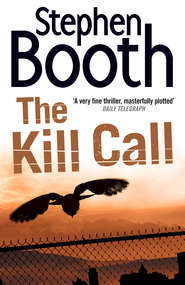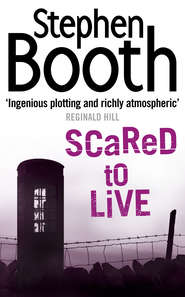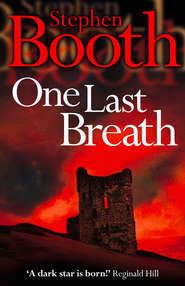По всем вопросам обращайтесь на: info@litportal.ru
(©) 2003-2024.
✖
Blind to the Bones
Автор
Год написания книги
2019
Настройки чтения
Размер шрифта
Высота строк
Поля
‘Mood? Well, her usual sort of mood, I suppose.’
‘We all know there are a lot of pressures on young people at university,’ said Fry. ‘Sometimes it’s very difficult for them, being away from home, and worrying about being short of money, as well as having all the exams and things. I wondered if you thought she might have been worried or depressed about anything?’
‘Nothing in particular. Not that you could put your finger on.’
‘I see. But being away from home, being short of money, doing exams … You’re right, it is a lot for them to cope with. Sometimes an emotional complication can be the last straw.’
The Renshaws looked at her in slight puzzlement.
‘A boyfriend,’ said Fry. ‘I wonder if she had a problem with a boyfriend?’
‘We don’t know.’
‘Perhaps there was somebody she was due to meet that night, that Thursday. Something could have happened to upset her. She could have had an argument with a boyfriend. Don’t her housemates know who she might have been seeing?’
Mrs Renshaw shook her head. ‘Her friends say there was nobody special – just a group of college friends. Both male and female, we gather. They used to meet up for a drink at a local pub, or go into Birmingham for the evening, that kind of thing. Unless Emma had a headache and didn’t feel like going out.’
‘Did she suffer from headaches a lot?’
‘Now and then. She said it was stress. She found some of the assignments and exams a bit stressful.’
‘Did she ever see a doctor about her headaches?’
‘Not so far as we know.’
‘Or about the stress?’
‘We don’t think so.’
‘Stress can be a difficult thing to cope with, for young people living away from home. It isn’t a good idea to bottle it up.’
Even as she said it, Fry knew it was a particularly useless piece of advice. Not bottling it up involved having someone you could talk to about things like that. She couldn’t follow the advice herself, and wouldn’t have appreciated being given it. But the Renshaws took it well.
‘She wouldn’t talk to us about it much, but there was another girl in the house, Debbie. They were very friendly.’
‘How many people shared this house?’
‘Four.’
‘So the other two were boys?’
‘Yes.’
‘Were you happy with that arrangement?’
‘We trust Emma,’ said Sarah. ‘Besides, we know Alex Dearden. He’s a nice boy – we had no worries on that score.’
Fry waited for one of them to say the same about Neil Granger, but they didn’t. Instead, the Renshaws glanced at each other again, passing some hidden message.
‘I understand Emma knew both of the boys from an early age,’ said Fry.
‘They both lived in Withens as children, so they went to the same school.’
‘So both Alex Dearden and Neil Granger were old friends of Emma’s. You knew them both well, and you were happy for your daughter to be sharing a house with them.’
‘We know them both,’ said Howard.
‘A set-up like that could be enough to cause stress in itself, in some circumstances.’
‘I don’t think Emma found it a problem. She is a very well-balanced girl.’
‘Apart from the stress she suffered because of the work and the exams.’
‘Yes.’
Mr Renshaw had been listening to his wife carefully. Now he looked at Fry. ‘She isn’t the sort of girl to kill herself,’ he said. ‘We’re quite sure of that.’
‘Oh, quite sure,’ agreed his wife.
‘Thank you.’ Fry sighed. She had noticed that every time she slipped up and used the past tense in referring to Emma, one of the Renshaws corrected her gently.
‘You realize there’s no reason why she shouldn’t come back,’ said Sarah.
‘It’s been over two years now, Mrs Renshaw.’
‘But there’s no reason why she shouldn’t come back.’
Howard Renshaw leaned forward with a smile, trying to look like a helpful intermediary, ready to calm the situation and smooth over the sudden tension.
‘There are plenty of young people who go missing for long periods of time,’ he said helpfully.
‘Yes, I know, Mr Renshaw,’ said Fry.
‘And many of them turn up again, safe and sound – sometimes after several years.’
‘Yes.’
‘And you know perfectly well that the police enquiries at the time found no evidence of a crime.’
‘No,’ said Fry.
But Howard Renshaw was sharp enough to catch her hesitation.
‘At least, that’s what they told us,’ he said, suddenly fixing her with an accusing stare.
‘There’s some new evidence,’ said Fry.
‘Evidence?’











